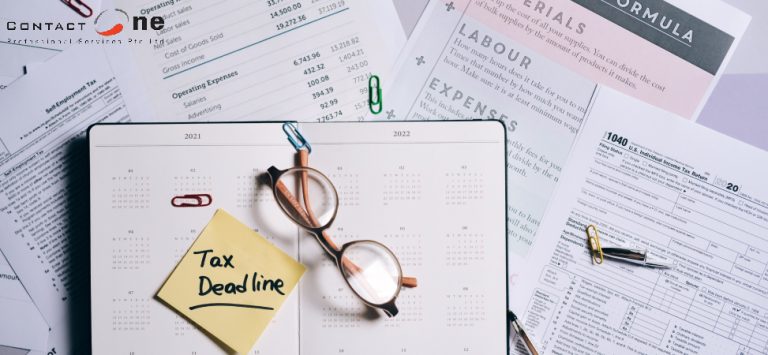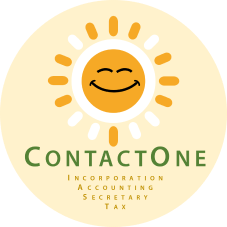In the business world, the adage ‘a penny saved is a penny earned’ holds significant weight, especially concerning corporate tax in Singapore. This blog aims to unravel the complexities of corporate tax in Singapore, highlighting its pivotal role in shaping business planning strategies. As we navigate the nuances of the Singapore corporate tax regime, we aim to provide a comprehensive understanding of how tax planning is integral to business success. We’ll transition from the importance of corporate tax in business decision-making to practical strategies that can be implemented to optimise your tax position.
Deciphering Corporate Tax in Singapore
Singapore’s competitive business environment requires mastering the intricacies of corporate tax for strategic business planning. The low Singapore corporate tax rate is a key attraction for businesses. However, understanding the broader tax framework—including deductions, exemptions, and taxable income categories—is essential for minimising tax liabilities and benefits.
Staying informed about the frequent updates and changes in tax policies by the Inland Revenue Authority of Singapore (IRAS) is vital for businesses to ensure compliance and adapt their financial and operational strategies accordingly.
Additionally, Singapore offers a range of tax incentives and rebates to encourage activities such as research and development, which businesses can leverage to reduce their effective tax rate significantly. These incentives are not just about tax savings; they represent opportunities for reinvestment and growth.
Therefore, navigating the corporate tax landscape in Singapore is a blend of compliance, strategic planning, and opportunistic use of the tax system to drive business growth and success in the region’s dynamic economy.
Leveraging Tax Incentives for Business Advancement
The allure of a competitive corporate tax rate is enhanced by a diverse array of incentives to foster business growth and innovation in Singapore. These incentives are pivotal in shaping a business’s financial and strategic trajectory. By capitalising on these offerings, companies can significantly diminish their corporate tax in Singapore while fuelling their growth and expansion.
For instance, startups can benefit from initial tax exemptions, which provide a financial cushion in the crucial early stages of business. Additionally, established companies engaging in research and development (R&D) can avail themselves of substantial tax deductions, making innovation a more viable and attractive pursuit.
Beyond startups and R&D, the Singaporean government also offers incentives targeting specific industries and activities. These include tax breaks for internationalisation efforts, where businesses expanding overseas can enjoy reduced corporate tax rates or exemptions.
There are also sector-specific incentives, such as those for the finance and technology sectors, designed to bolster Singapore’s standing in these fields globally. These targeted incentives reduce liabilities relating to corporate tax in Singapore and encourage businesses to venture into new markets and adopt innovative practices.
The strategic use of these tax incentives requires an understanding of their availability and a keen insight into how they align with a company’s long-term goals. Forward-thinking businesses often integrate these incentives into their broader business planning, ensuring that their growth strategies are financially viable and tax efficient.
This approach allows businesses to maximise their benefits from the Singaporean tax system, turning what might be seen as a mere financial obligation into a powerful tool for business development and market leadership.
Integrating Tax Planning with Business Strategy
Effective tax planning is critical to a successful business strategy, particularly in understanding and managing corporate tax in Singapore. It involves a holistic approach where strategic investments, operational adjustments, and financial restructuring are closely aligned with tax considerations to optimise tax efficiency.
This alignment necessitates a thorough analysis of how business decisions, from expansion to expenditure, influence corporate tax liabilities. It’s not just about current implications but also about anticipating the future tax impact of these decisions, ensuring that businesses are prepared for any changes in the Singapore corporate tax rate or related regulations.
Furthermore, integrating tax planning with business strategy means constantly adapting to the evolving tax environment. As the Singapore corporate tax rate and laws change, businesses must regularly update their strategy to remain compliant and financially healthy. This dynamic approach to tax planning ensures that companies not only adhere to legal requirements but also leverage tax policies to their advantage.
By embedding tax considerations into every aspect of business planning, companies can transform corporate tax in Singapore from a mere compliance obligation into a strategic tool for fostering growth, enhancing profitability, and maintaining a competitive edge in the market.
Navigating the Regulatory Landscape
Ensuring compliance with Singapore’s tax laws is fundamental to business operations. This critical task involves navigating the comprehensive regulatory framework of corporate tax in Singapore. Adhering to these regulations is about avoiding legal penalties and protecting your company’s reputation and standing in the business community.
Businesses must focus on the essentials of timely and accurate tax filing. This practice is essential for maintaining good standing with the Inland Revenue Authority of Singapore (IRAS). Staying abreast of regulatory changes is equally important, as these can have significant implications for business operations and continuity.
Additionally, understanding the specific requirements and nuances of corporate tax in Singapore is key to successfully navigating this complex landscape. This includes being aware of deadlines, understanding the documentation required, and knowing the various tax rates and exemptions applicable to your business.
Regular engagement with tax professionals and attending workshops or seminars on Singapore corporate tax law can provide valuable insights and keep your business informed of the latest developments. In doing so, businesses ensure compliance and position themselves to take advantage of any new opportunities or benefits arising from changes in the Singapore corporate tax rate or policies.
This proactive approach to tax regulation is essential for any business looking to thrive in Singapore’s dynamic economic environment.
Technology in Tax Management
Technology integration in managing corporate tax in Singapore is transforming the landscape of tax compliance and strategy. Digital tools and platforms are invaluable in simplifying the process of adhering to Singapore’s tax laws, enhancing the accuracy of tax filings, and providing critical insights that aid in strategic decision-making.
Advanced software for calculating corporate tax rates, automated filing systems, and analytical tools for tax planning streamline these processes and ensure higher compliance with the regulations set forth by the Inland Revenue Authority of Singapore (IRAS). In a rapidly evolving digital world, staying updated with technological advancements in tax management is crucial for businesses looking to maintain efficiency and compliance.
Furthermore, adopting technology in tax management is not just about compliance; it’s a strategic move that can yield significant competitive advantages. Advanced analytics and predictive modelling can offer businesses foresight into potential future tax liabilities and savings, allowing for more informed financial planning.
This foresight is particularly valuable in navigating the complexities of corporate tax in Singapore, helping businesses to anticipate changes in the Singapore corporate tax rate and adapt accordingly. By embracing these technological tools, companies can meet their current tax obligations more efficiently and strategically plan for future tax scenarios, ensuring ongoing success and stability in Singapore’s dynamic business environment.
Harnessing the Power of Corporate Tax Strategy Through ContactOne
The journey through corporate tax in Singapore is one of continual learning and adaptation. As we have explored, it is not merely a statutory requirement but a crucial component in shaping the strategic direction of any business.
From leveraging tax incentives for growth to ensuring compliance within the ever-evolving regulatory framework, the importance of astute tax management cannot be overstated. Embracing technology in this process further enhances accuracy and efficiency, keeping your business ahead in today’s competitive market.
As your trusted partner, we at ContactOne are committed to guiding you through Singapore’s corporate tax labyrinth. Our expertise is not just in ensuring compliance but in transforming tax strategies into tangible business advantages. Whether navigating new tax laws, optimising your tax position, or leveraging technology for better tax management, our team is ready to assist you at every step.
Don’t let the complexities of corporate tax hinder your business’s potential. Reach out to us at +65 8666 3633 or +65 8813 3833 or send your inquiries to [email protected].







